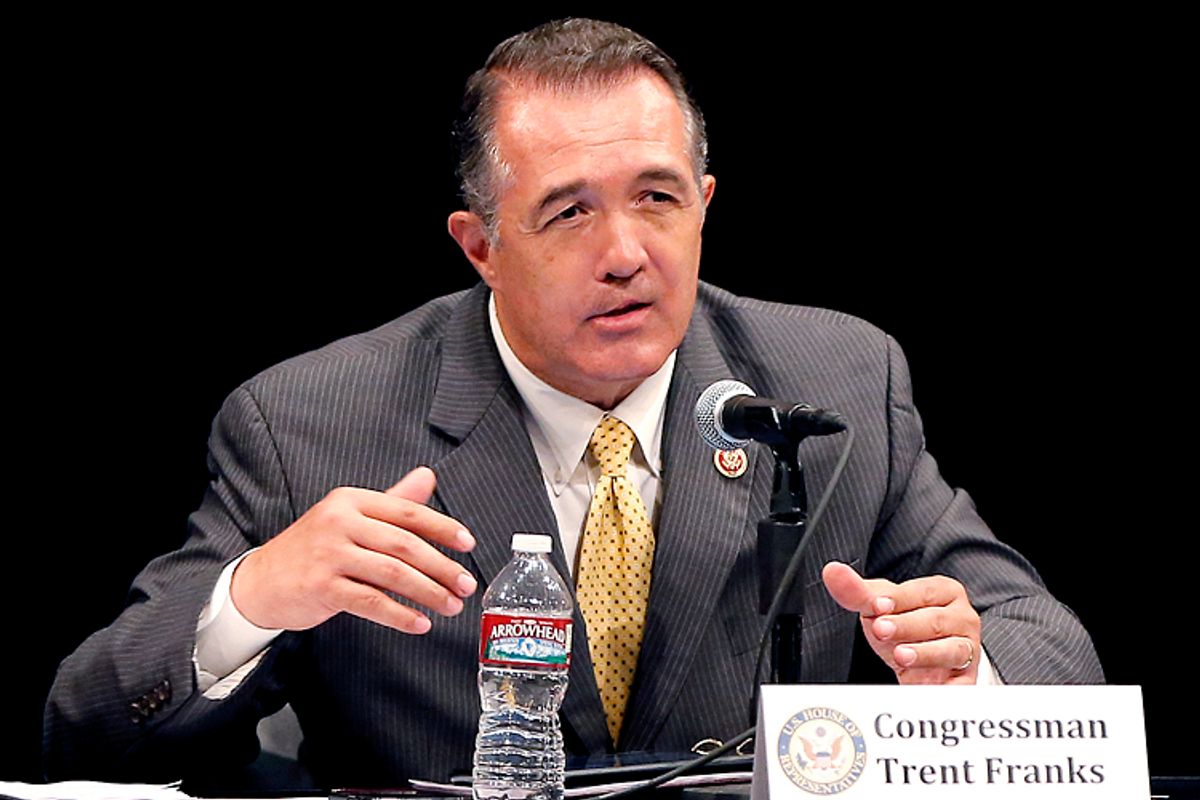The practice of sex-selective abortion has resulted in a dramatic decline in the number of girls in certain parts of the world. It's a genuine human rights crisis that, in places like the Indian state of Haryana, has led to a gender ratio of 832 girls for every 1,000 boys. These kinds of skewed gender ratios have caught the attention of the international community, and, in recent years, many members of Congress.
But, as Salon has previously noted, many of the American lawmakers talking the loudest about the issue are doing so in a cynical attempt to undermine women's reproductive rights. When politicians like Arizona Rep. Trent Franks and New Jersey Rep. Chris Smith talk about eradicating sex-selective abortion, they don't mean challenging the sexist cultural norms that fuel son preference -- they mean banning abortion. Period.
As human rights advocate Mallika Dutt notes in a Monday editorial for RH Reality Check, "The people shaking their fists the hardest about the issue are actually those who are most hostile to women’s rights." (Full disclosure: Mallika is a friend and former colleague.) But, as Dutt continues, claiming to "protect" women's rights by denying women rights makes absolutely no sense:
[Gender-biased sex selection] is a cultural practice driven precisely by devaluing and discrimination of women. Stopping it, therefore, is not about denying individual women their “choice.” It is about promoting the rights and worth of girls and women... Yet strangely, it is only when abortion enters the equation that certain individuals -- like those I debated at the [Congressional Subcommittee on Africa, Global Health, Global Human Rights, and International Organizations] hearing -- get interested in “saving” girls and women.
In reality, only 5 percent of abortions in India are connected to GBSS. At the same time, 47,000 women die as a result of unsafe abortion each year; the vast majority of these deaths occur in low-income settings. Deaths from complications of unsafe abortion account for 13 percent of all maternal deaths worldwide.
If you want to “protect” women, make sure they have access to safe abortions. And get to the root of the problem by challenging and changing the cultural and institutional norms that enshrine the devaluing of girls. We also need more reliable data to better measure the extent of sex-selection practices and progress made toward challenging them. And we need better law and enforcement on inheritance lines, dowry, and legal and safe abortion. Most of all, women and girls require access to information, health services, education, and security.
When we make daughters welcome in households, neighborhoods, and nations, we are all able to thrive. What they don’t need is to have their rights taken away under false claims.

Shares